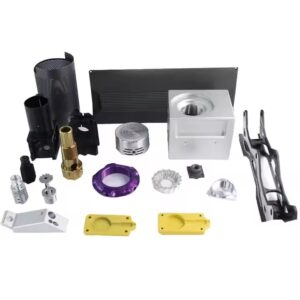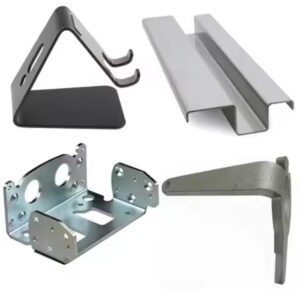How to Outsource Manufacturing and Save Time, Money, and Improve Productivity 2022
Introduction: What is Outsourcing Manufacturing?
Outsourcing manufacturing is the process of outsourcing production to a third party. This is done to reduce costs, increase flexibility and improve product quality.
Outsourcing manufacturing can take many forms. It can be as simple as outsourcing a single process, such as metal stamping or assembly, or it can be more complex such as outsourcing the entire production process.
Outsourcing manufacturing has been around for many years and there are many benefits to it. The most notable benefit is that companies are able to focus on their core business while still producing their product at a lower cost than if they were producing it themselves in-house.

5 reasons for outsourcing manufacturing
Cost Effectiveness
The biggest reason for outsourcing is to save money. But there are many reasons why a company would want to cut down on operating expenses. For instance, there could be a problem with a vendor or an increase in costs from suppliers. And the company needs to lower its operating costs to remain competitive. Outsourcing manufacturing is an effective strategy that allows businesses to cut down on costs. Companies that outsource their manufacturing processes to third parties take care of the production process, allowing them to focus on their core business. By outsourcing production, these companies can save money and increase profit margins.
Availability Of Industry Knowledge
Startups and business owners who outsource production receive a significant advantage in terms of knowledge and resources by working with an oversea company. Production experts like BENO are willing to give practically endless amounts of industrial and production knowledge. Companies that outsource production to experts enjoy significant benefits from advice on materials and production techniques. An international manufacturer can cut costs and lead times while still providing a product that exceeds expectations by using the proper mix of techniques and materials.
Better Resource Distribution
It can be necessary to restructure the business model. Businesses that focus on their best function rather than juggling all the operational duties involved in manufacturing acquire a significant competitive advantage in the market and more fully realize their potential. By collaborating with an international business you can trust, you can put more of your attention on business development and growth rather than manufacturing and logistics. Companies that internalize an excessive number of procedures run the danger of experiencing logistical and financial issues that may be impossible to resolve.
Increase 0utput And Effectiveness
When allocating its labor, a corporation is constantly looking for ways to increase efficiency. Production may be the area where there is a more exceptional skill from outside the firm. For instance, a laptop manufacturer may discover that it is more profitable to outsource electronic components to an OEM (Original Equipment Manufacturer) than than making them internally. Businesses of all sizes have the opportunity to compete on a global scale by outsourcing manufacturing to a foreign firm that is staffed with the right resources. With this strategy, possible limits on smaller businesses are removed by giving them the possibility to collaborate with multimillion-dollar industrial powerhouses.
Lowering Business Risk
Businesses can reduce their financial risks by outsourcing tasks that they do not need to perform in-house. This is accurate when a business hires an outsourcer who is very skilled in providing that service. Your organization can successfully lower offshore outsourcing risks with partial outsourcing because you are not required to transfer all of your operations. Additionally, you can switch vendors at any moment and greatly recoup your costs if you are dissatisfied with the caliber of the work. By partially outsourcing only the non-core duties, you can totally protect your trade secrets, intellectual knowledge, and development information on new products from the outsourced provider.
Benefits of Outsourcing Manufacturing to a Third Party
Outsourcing manufacturing is a great way to reduce costs, improve quality and increase efficiency. When you outsource your manufacturing, you can focus on the core of your business while still getting the benefits of using the latest technology in production. Outsourcing also helps with improving efficiency by taking away some of the responsibilities that might be preventing you from doing your best work.
Lower Labor Costs
One of the primary advantages of outsourcing manufacturing is lower labor expenses. Outsourcing can be a good solution in the right situations, despite the fact that there might be wider humanitarian and compliance considerations involved. With the appropriate cooperation, some manufacturers can get labor at a far lower price. When you outsource your manufacturing, you don’t only save money on floor labor. Additionally, you’re cutting back on HR staff, training, managerial time, overtime, sick and holiday pay, and other labor expenses.

Improved focus on core competencies
A corporation may frequently decide to outsource its non-core activity, or the production of its goods, if it understands that its core competency, or the thing it does best, is the sales and marketing of its product rather than the production of its product. Internal product teams are overworked far too frequently. By outsourcing manufacture to a reputable manufacturing partner, experts are free to concentrate on their areas of expertise, such as design, engineering, testing, marketing, etc., and the vital duties that are essential to the success of your business.
Support Increased Demand
Demands for a product can change unexpectedly. Orders for a specific product can suddenly increase, and businesses might need to allocate more resources to meet the demand. When you manufacture internally, scaling up quickly can be challenging, and scaling down can be expensive. When you outsource, this is not a problem, which allows you to be more flexible and agile in responding to the market’s constantly shifting expectations throughout the product life cycle. In-house manufacturing efforts can be supplemented by an outsourcing firm, making it simpler to satisfy these new expectations. The ultimate objective is to increase finished product production while minimizing manufacturing expenses.
Access to Industry Knowledge
Your internal team might not be able to handle the particular difficulties of manufacturing a given component. You can cooperate with partners who already have production and industry knowledge by outsourcing manufacturing. Your partner can offer suggestions for enhancing the quality and design of the product, accelerating time to market, enhancing manufacturability, and more during the design process. These business partners are adept at selecting the materials and processing techniques that will produce parts that meet your targeted cost and specified part requirements.
Contribute to Efficiency
A company is constantly looking for methods to increase the effectiveness of the labor it has allocated. Production may be the area where there is more exceptional outside knowledge. For instance, a laptop manufacturer may discover that outsourcing electronic components to an OEM (Original Equipment Manufacturer) is more profitable than creating them internally. Businesses that consistently succeed thrive on efficiency. Companies can access talent and resources to stay competitive in the market by collaborating with foreign partners. This strategy gives smaller businesses the chance to work cost-effectively as partners with production behemoths.
How to Find the Right Outsourcing Partner

Step 1: Define Your Goals And Requirements In Outsourcing
Prior to outsourcing, it’s crucial to precisely outline the business objectives and project criteria you hope to accomplish. List the things you want to outsource, how you want them handled, the areas where you need assistance, and how the outsourcing will fit into your present business process. This will assist you in outlining the services you require and confirming that the outsourcing firm you are researching can fulfill your requirements.
Make sure to let your prospective partner know if there are any relevant items available that can give them an idea of the nature and scope of your project. Your partner will be better able to understand the scope of your concept and provide you a more precise estimate as a result. If at all feasible, plan your spending. If required, work backward from your company concept. Make sure your budget is appropriate for the price and target market. Choose the date on which you wish to launch your product. In order to effectively discuss the idea with potential partners, this information will be essential.
Step 2: Verify provider References, Experience and Work Samples
You must research a company thoroughly before deciding to engage with them since too many clients have been hurt by service providers who have broken their promises.How long have they been in business and what level of experience do they have there? When did they start working in the industry? In what location is their factory? What payment options are available? Ask them as much as the questions related with the project. Requesting client references is a smart technique to assess the caliber of a provider’s service. Either current or former customers may qualify. Have a brief conversation with them to learn more about their experience and whether the outsourcing partner was successful in meeting their expectations.
Step 3: Compare services and prices
One of the biggest advantages of outsourcing is the cost. Reducing labor costs translates into improved profitability. However, you get what you pay for and using the cheapest provider is not always a good idea.The urge to pick the lowest bidder is hard to resist, and sometimes the lowest bidder You may even be the highest bidder. However, 5% to 15% savings are meaningless if the product is of inferior quality. Compare the different services available, what’s included and what makes us different from others. Make sure the supplier’s work quality meets the market needs. It’s not that the cheapest option isn’t the best, but it’s important to look at more than just the price.
Step 4: Interview outsourcing companies just like you would any new employee
While interviewing potential outsourcers, draw on your own experience hiring workers. Does the company providing the outsourced service possess the skills, character, and commitment you want on your team? Does the Outsourcer have a history of being trustworthy and open, share your company values, and be dedicated to your work ethic?
Step 5: Analyze communication abilities
Communication is essential for successful outsourcing. An outsourced project’s success depends on clear communication. When interacting with prospective outsourcing partners, gauge how well their management teams can understand your needs and interact with you and your staff. Instead of a company that is solely interested in job completion, it is advantageous to look for an outsourcing company that is eager to become a partner and work towards the development of your company. Do they, for instance, proactively reach out to share information on cost-saving measures, successes, internal controls, and other comparable activities?
Conclusion
Working with an outsourcing manufacturer may seem confusing at first; occasionally, there will be faults that are unavoidable. However, it is typical given that the word “outsource manufacturing” is broad and that newer enterprises take some time to become used to it. The aforementioned details only cover the fundamental understanding of outsourcing manufacturing that each and every business owner needs to be aware of. You should take the time to unearth the remaining concealed facts, though.




